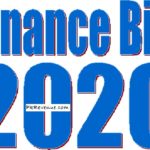KARACHI: The foreign investors operating in Pakistan have showed satisfaction over security environment especially after quick response of law enforcement agency against failed terror attack on Pakistan Stock Exchange (PSX).
“The smooth and professional handling of the brazen attack on Pakistan Stock Exchange on June 29, and restoring order within a very short time, is a testimony of the OICCI members’ confidence in the ability of the LEAs to professionally combat any threat to life and property in the country, said Haroon Rashid, President Overseas Investors Chamber of Commerce and Industry (OICCI) while commenting on latest findings of security survey,
OICCI is the largest chamber in terms of economic contribution and representing top 200 foreign investors in Pakistan, has released the results of its latest Annual Security survey 2020, covering feedback on the security environment from July 2019 to June 2020.
Overall, the foreign investors have shown high level of satisfaction on the fast improving security environment and have also appreciated the performance of law enforcement agencies (LEAs) in the main business centers of Pakistan, Karachi and Lahore, raising the security satisfaction profile of the two cities and bringing them at par with other megacities in the region.
The OICCI President said: “Foreign investors are not deterred by isolated incidences and continue to take a holistic view of the operating environment, which, OICCI members perceive to be highly positive showing continuous improvement.”
The survey respondents included CEOs and senior management of member organizations, and was participated by 70 per cent of the OICCI’s 200 members, who belong to 35 countries and operate in 14 key sectors of the economy in Pakistan.
It may be noted that over two third of the OICCI members have their head offices in Karachi with operations all over country. The survey was conducted from May 15th till June 22nd.
OICCI 2020 Security Survey indicates that the foreign investors, overall, are impressed with further improvement in the security environment over the past twelve months, since July 2019, especially in Karachi and Lahore, with noticeable improvement in other business centers as well.
While giving assessment of the overall security situation, 60 percent of the respondents have reported improved security environment for own and Customer’s Business, as well as for their respective suppliers and employees.
Irfan Siddiqui, OICCI Vice President pointed out: “this improvement is over and above the already improved security environment last year, and the continuous improvement recorded in the OICCI members annual security surveys since 2015.”
He further added that It is highly encouraging that despite many disruptions during the past twelve months, due to Azadi March in December 2019, border tension with India during Q3 2019, and subsequent travel restriction since end March 2020 due to COVID 19, the visit of foreign nationals visiting Pakistan for OICCI members business, pre COVID 19, showed a healthy increase, as over 40 percent respondents reported more visitors than last year, with 26 percent hosting more than 50 visitors and most respondents getting between 20 and 50 visitors.
The foreign business visitors were mainly from China, UK, USA, UAE, as well as other European and Asian countries.
Due to the sustained improvement of the security environment, OICCI members reported that over 90 percent of the Board and management meetings of their Pakistan business operations, involving HQ and/or Regional Management, were held within the country.
In terms of serious crimes, 87 percent respondents indicated a decrease over last year in Karachi and Lahore. However, the survey respondents have expressed concern on the increasing trend of street crimes.
All in all, 37 percent respondents in Karachi and 27 percent in Lahore reported concern on increasing street crimes.
According to the results Islamabad experienced the lowest increase in street crimes among the key business centers.
There was also a thumbs up for the LEAs as, by and large, the foreign investors were satisfied with the performance of Law Enforcement Agencies, with over 90 percent expressing satisfaction in their interactions with Karachi and Lahore Police, Sindh Rangers, Punjab Police and CPLC and 84% for Sindh Police.
OICCI Security survey is very comprehensive and gives a detailed feedback of a large number of foreign investors operating in Pakistan on various aspect of doing business connected with security and its impact on their operation which is regularly sought by diplomats and security professionals.
Established in 1860, Overseas Investors Chamber of Commerce and Industry (OICCI), is the largest Chamber of Commerce in Pakistan based on economic contribution in the form of taxes and investment by its members and is the collective voice of over top 200 foreign investors in Pakistan, including over 50 Fortune 500 companies, who contribute about one third of the total tax collection in the country and a significant portion of the GDP.
Coming from 35 countries and working in 14 key sectors of the economy, OICCI members are leaders not only in economic activities and investment but are also thought leaders in transfer of technology and in CSR activities.






